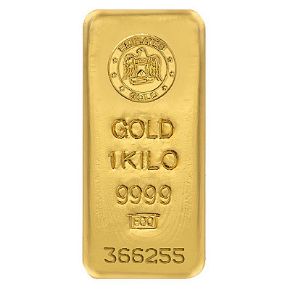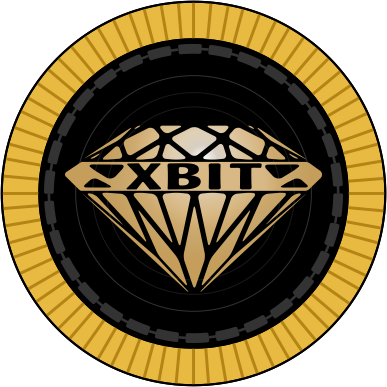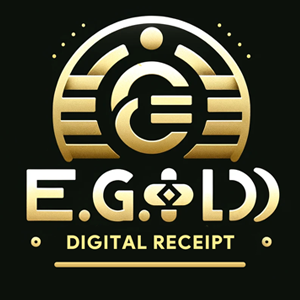
In the evolving landscape of digital finance, using Bitcoin to purchase physical gold represents a bridge between decentralized innovation and timeless value preservation. This transaction type appeals to privacy-conscious investors seeking to diversify portfolios amid economic volatility. However, regional regulations can complicate the process, ranging from stringent KYC requirements to outright restrictions on crypto-to-fiat conversions. This guide outlines a step-by-step approach to legally and efficiently navigate these rules, ensuring compliance while minimizing friction.
Step 1: Assess Your Jurisdiction's Regulatory Framework
Before initiating any transaction, familiarize yourself with local laws governing cryptocurrencies and precious metals. Regulations vary widely due to differences in financial oversight, anti-money laundering (AML) standards, and consumer protection mandates.
- United States: The Financial Crimes Enforcement Network (FinCEN) classifies crypto exchanges as money services businesses, requiring robust AML/KYC protocols. Gold purchases via Bitcoin are permissible through licensed dealers, but expect IRS reporting for transactions over $10,000. State-level rules, like New York's BitLicense, may impose additional hurdles for New York residents.
- European Union: Under the Markets in Crypto-Assets (MiCA) framework, virtual asset service providers must register and adhere to uniform AML directives. Buying gold with Bitcoin is straightforward via EU-based platforms, but cross-border transfers trigger the Travel Rule for traceability.
- United Kingdom: The Financial Conduct Authority (FCA) oversees crypto firms, mandating consumer warnings and segregation of client funds. Gold dealers must comply with HMRC tax rules, treating such purchases as barter transactions potentially subject to VAT.
- Asia-Pacific (e.g., Singapore and Japan): Singapore's Monetary Authority promotes innovation with clear licensing, allowing seamless Bitcoin-to-gold trades. Japan's Financial Services Agency enforces strict exchange registrations, emphasizing security post-Mt. Gox.
- Emerging Markets (e.g., India and Brazil): India imposes a 30% tax on crypto gains and a 1% TDS on transfers, while gold imports face customs duties. Brazil's Central Bank regulates digital assets under evolving fintech laws, requiring certified intermediaries.
Action Item: Consult official government websites or a local compliance expert. Use tools like the FATF's regulatory database to cross-reference your location.
Step 2: Select a Compliant Platform or Dealer
Not all services facilitate Bitcoin payments for gold due to volatility and verification needs. Prioritize platforms with built-in regulatory adherence.
- Centralized Exchanges: Platforms like Kraken or Bitstamp offer fiat off-ramps and partner with gold vendors. Verify they hold necessary licenses in your region.
- Decentralized Options: Peer-to-peer networks like Bisq enable direct trades, but they bypass traditional oversight—ideal for privacy but riskier for disputes. Ensure the counterparty is vetted.
- Specialized Gold Dealers: Services such as BullionVault or Goldmoney accept Bitcoin directly, handling storage and delivery. They often provide jurisdiction-specific guidance and insured custody.
Tip: Look for ISO 20022 compliance for seamless blockchain integration and audit trails that satisfy regulators.
Step 3: Complete Identity Verification and Documentation
KYC is non-negotiable in most regions to prevent illicit flows. Prepare documents in advance to avoid delays.
- Gather essentials: Government-issued ID, proof of address, and source-of-funds evidence (e.g., bank statements or tax returns).
- For high-value purchases: Expect enhanced due diligence, including beneficial ownership declarations.
- Tax Implications: Document the fair market value at transaction time. In the US, this triggers capital gains calculations; in the EU, it may qualify for VAT exemptions on investment gold.
Pro Tip: Use privacy-enhancing tools like hardware wallets for transfers, but disclose them if required by your platform's terms.
Step 4: Execute the Transaction Securely
With compliance squared away, focus on execution.
- Funding Your Wallet: Transfer Bitcoin from a secure source, accounting for network fees and confirmation times.
- Placing the Order: Specify gold type (bars, coins) and form (physical delivery or allocated storage). Confirm the exchange rate locks in to hedge volatility.
- Settlement: Opt for escrow services on P2P deals. For dealer-direct, use insured shipping with tracking.
Security Best Practices: Enable two-factor authentication, avoid public Wi-Fi, and consider multi-signature setups for large sums.
Step 5: Handle Post-Purchase Reporting and Storage
Regulations don't end at checkout—ongoing obligations ensure long-term viability.
- Reporting: File as required (e.g., FBAR for US persons holding over $10,000 abroad). Track basis for future sales to compute gains.
- Storage Solutions: Choose allocated storage in free-trade zones for tax efficiency, or home vaults for tangibility. Avoid commingled holdings to maintain ownership clarity.
- Monitoring Changes: Regulations evolve; subscribe to alerts from bodies like the Basel Committee on Banking Supervision.
Potential Pitfalls and Mitigation Strategies
- Volatility Mismatch: Bitcoin's swings can inflate costs—mitigate with stablecoin bridges if permitted.
- Cross-Border Friction: Tariffs or sanctions may apply; route through neutral jurisdictions like Switzerland.
- Scam Risks: Stick to reputable entities; verify via blockchain explorers.
Conclusion: Empowering Your Portfolio with Prudence
Navigating regional regulations for buying gold with Bitcoin demands diligence but unlocks a potent diversification strategy. By methodically addressing compliance, selection, verification, execution, and follow-up, you position yourself to leverage the strengths of both assets: Bitcoin's liquidity and gold's stability. As global finance digitizes, staying informed transforms regulatory complexity into a competitive edge. Always consult a qualified advisor for personalized advice—this guide is for informational purposes only.
Disclaimer: This content is not financial, legal, or tax advice. Laws change rapidly; verify with professionals in your jurisdiction.
NOTE
This Content is the copyrighted content of EE.GOLD. All rights are reserved. You are welcome to share or use our content only by including direct links to our website. Any other form of reproduction, distribution, or use without proper attribution is strictly prohibited.
This Content is intended solely for educational purposes. The information provided does not constitute financial or investment advice.
Please note that Digital Storage Receipt, Secure Storage Solutions, and Physical Gold Sales are the only services offered by EE.GOLD.
We strictly adhere to government regulations and are firmly against all illegal financial or investment activities globally.
For further inquiries, feel free to contact us through our official channels.










.png)

